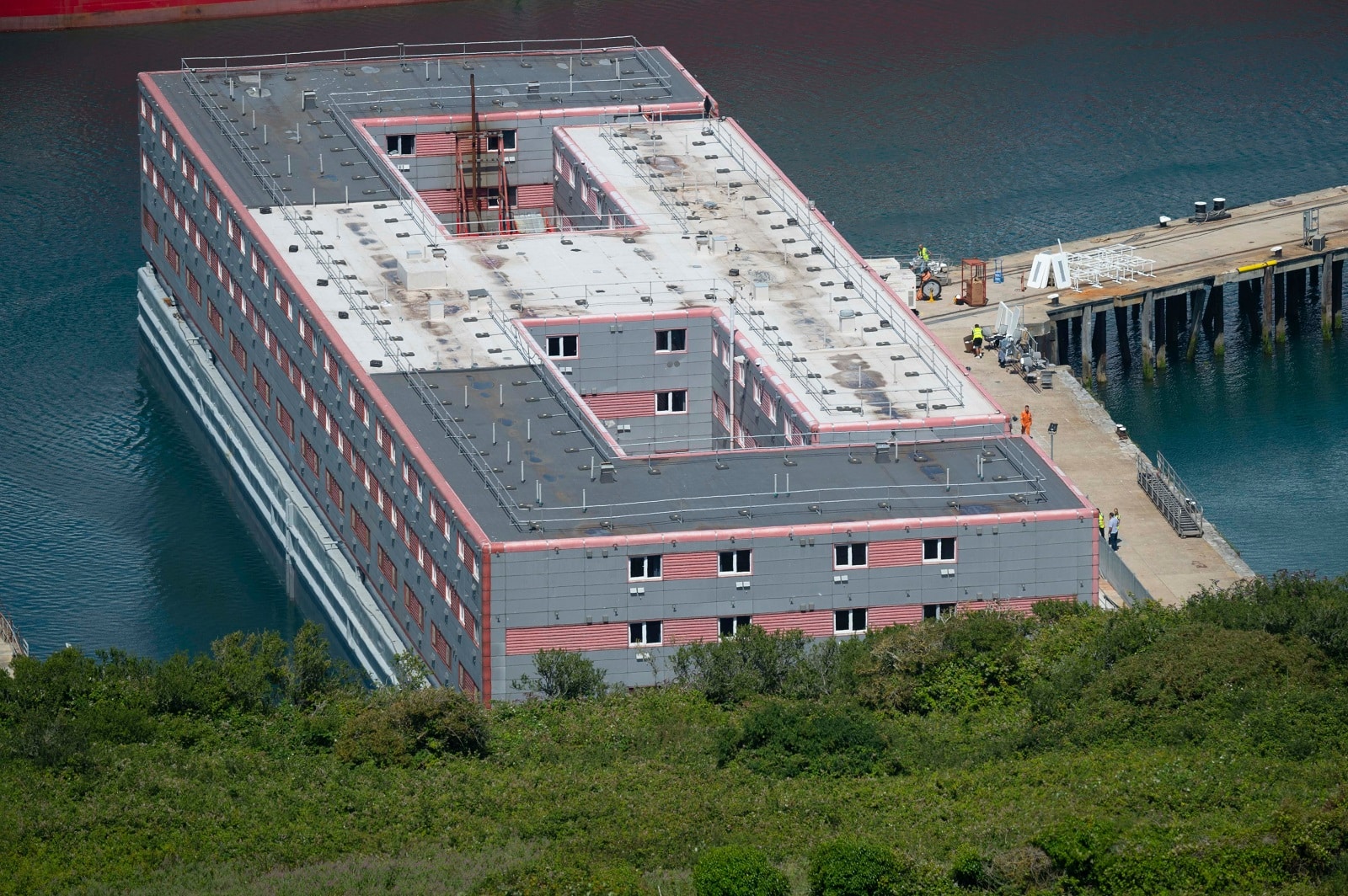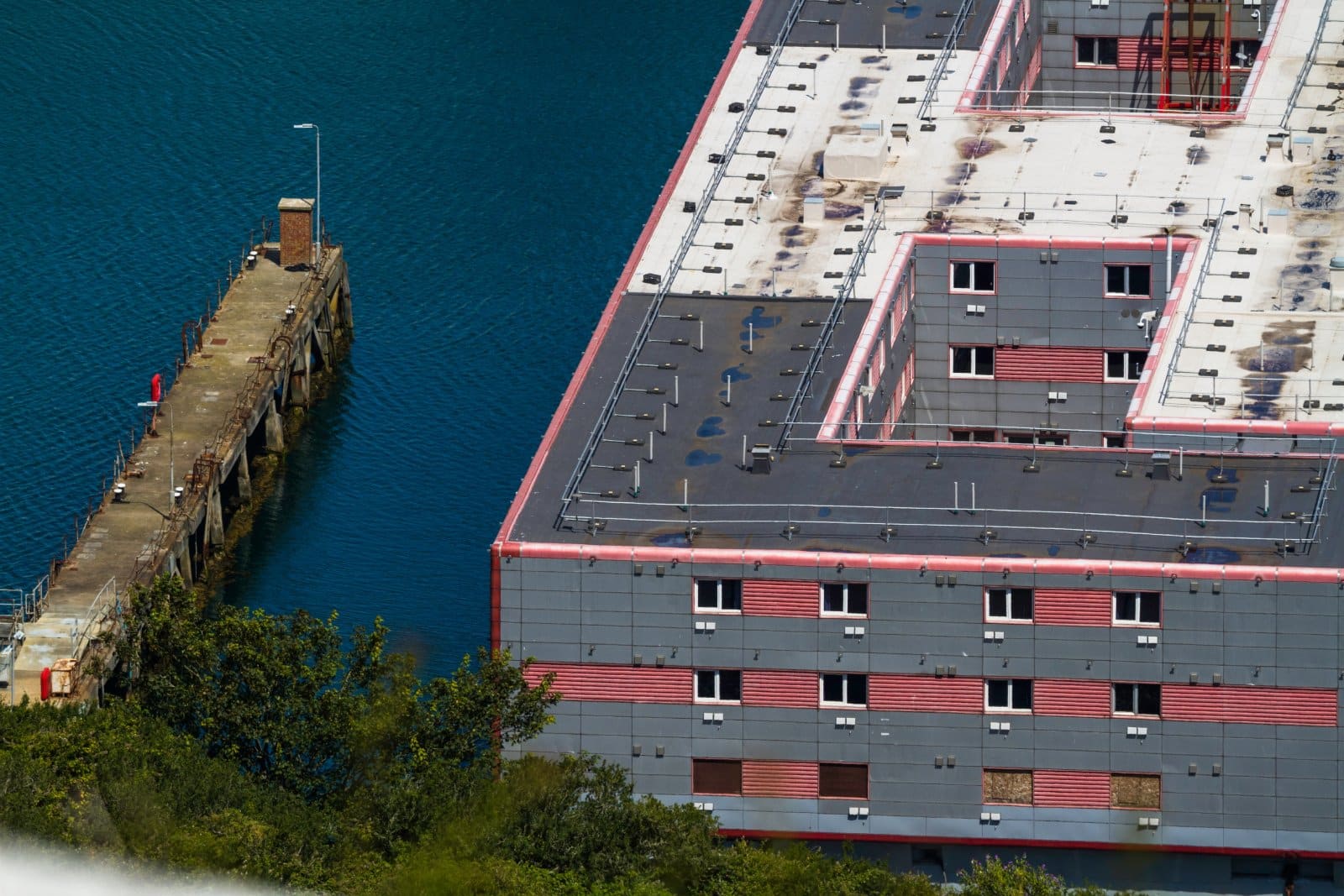The UK government has announced the closure of the controversial Bibby Stockholm asylum seeker barge next January, citing safety concerns and high costs. Here’s the full story.
Controversial Asylum Policy Symbol

The Bibby Stockholm barge, the prominent and profoundly controversial symbol of the UK’s asylum policy under the previous Conservative government, will be shut down and no longer used to accommodate asylum seekers in January 2025. This decision, announced by the Home Office, marks the end of a long and contentious chapter in the country’s handling of asylum applications, which human rights groups and charities have roundly criticised.
Home to 400 Asylum Seekers

The barge, moored off Portland, Dorset, has been home to up to 400 asylum seekers and has been fraught with controversy and criticism since it first took on asylum claimants in August 2023.
Costly Operations Ending

The Home Office’s decision to terminate the use of the Bibby Stockholm is part of a broader strategy to streamline the asylum process and reduce the eye-watering costs associated with keeping it running. Extending the barge’s use into the next year would have cost over £20 million. The government hopes its new asylum policies will save £7.7 billion over the next decade.
Determined to Restore Order

Angela Eagle, the Minister for Border Security and Asylum, said, “We are determined to restore order to the asylum system so that it operates swiftly, firmly and fairly, and ensures the rules are properly enforced. The home secretary has set out plans to start clearing the asylum backlog and making savings on accommodation which is running up vast bills for the taxpayer.”
Safety Concerns Raised

Aside from the cost, the Bibby Stockholm barge faced significant scrutiny regarding the safety and welfare of the asylum seekers forced to stay there. The Fire Brigades Union described it as a “potential deathtrap,” warning that it was dangerously overcrowded and had insufficient fire exits.
Legionella Bacteria Found

As if the Fire Brigades Union’s warnings were not dire enough, just days after asylum seekers were first taken on board, traces of Legionella bacteria, which can cause Legionnaires disease and Pontiac fever, were found in the barge’s water system, leading to the evacuation of all of the residents on board.
Tragic Suicide

However, the most tragic event occurred in December 2023, when Albanian asylum seeker Leonard Farruku, a 27-year-old musician, committed suicide. The senseless tragedy became a symbol of the barge’s failure to provide a safe and supportive environment for the asylum seekers on board.
Family Criticism

Farruku’s family have vocally criticised the government’s decision to use the barge, telling the Guardian, “We welcome the Home Office’s decision to close the Bibby Stockholm barge in January 2025. Our hearts are full of pain since Leonard’s death, and we do not want anyone else to go through what Leonard went through.”
Delayed Decision Questioned

They added, “We don’t understand why this decision was not made straight after Leonard’s death, however, as clearly the barge was not a safe place for him and many others.”
Labour Government Overhaul

The closure of the Bibby Stockholm is part of a larger effort by the current Labour government to overhaul the asylum system. Home Secretary Yvette Cooper has outlined a plan to address the backlog of asylum claims, which is seen as a crucial step in reducing the reliance on temporary accommodations such as barges and hotels.
Expedite Claims Processing

This plan aims to expedite claims processing, thereby decreasing the number of individuals needing temporary housing and reducing associated costs.
Legal Challenges Continue

While the decision to end the use of the Bibby Stockholm has been welcomed by many, campaigners and advocacy groups that have long advocated for its closure have since raised legal challenges against the use of other temporary accommodations, such as former RAF bases, for housing asylum seekers.
Reducing Accommodation Numbers

Imran Hussain, executive director of external affairs at the Refugee Council, emphasised the importance of addressing the backlog of asylum decisions to reduce the number of people needing accommodation. He noted, “Ending the use of the Bibby Stockholm, and barges and hotels more generally, will make hugely important savings that help the government fix the asylum system.”
Future Accommodations Uncertain

As the Home Office prepares to transition away from the Bibby Stockholm, questions remain about the future accommodations for those currently housed on the barge. A Downing Street spokesperson stated, “Decisions will be made on a case-by-case basis and will be made working closely with local authorities.”
Significant Shift in Policy

The closure of the Bibby Stockholm barge marks a significant shift in the UK’s approach to the treatment and housing of asylum seekers. While it addresses some of the immediate financial and safety concerns, it has also drawn media attention to the ongoing challenges of managing asylum applications and providing humane living conditions for those seeking refuge.
Future Impact Unclear

Following the announcement of the closure of the controversial barge, it remains to be seen whether this will significantly change how the UK treats some of the world’s most vulnerable people in the future.
Featured Image Credit: Shutterstock / Jory Mundy.

